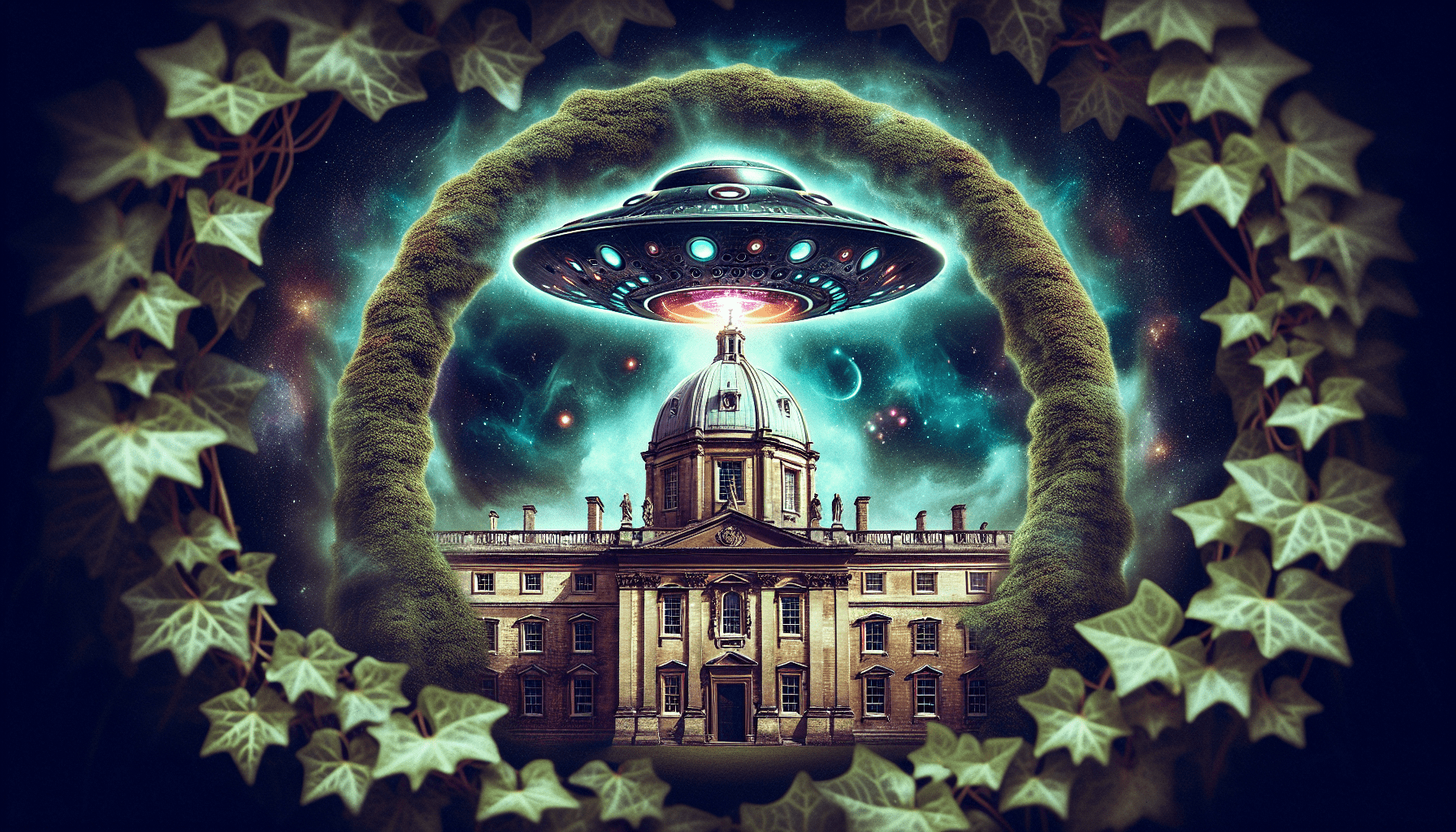Have you ever wondered about the fascinating world of UFOs and the role that academia plays in the disclosure of their existence? It’s a topic that continues to captivate the minds of enthusiasts and skeptics alike. In this article, we will explore the intriguing connection between UFO disclosure and academia, examining the influence of scientific research, the challenges faced by academics, and the potential impact on our understanding of the universe. Get ready to embark on a journey that will leave you questioning what lies beyond the skies.
UFO Disclosure And The Role Of Academia

Historical Background Of UFO Disclosure Efforts
For decades, the existence of unidentified flying objects (UFOs) has been the subject of intense speculation and debate. Many individuals have reported witnessing strange sightings in the sky, leading to widespread curiosity and a desire for answers. However, obtaining credible information regarding these sightings has proven to be a challenging task. Rumors and conspiracy theories have often clouded the truth, making it difficult for the general public to separate fact from fiction. In response to this growing interest and the need for transparency, numerous individuals and organizations have made efforts to disclose information about UFOs.
Influence of Government Agencies on UFO Disclosure
Government agencies, such as the United States Department of Defense and the Central Intelligence Agency, have played a significant role in shaping the narrative surrounding UFOs. These agencies have been tasked with investigating and documenting sightings, often operating in secrecy due to national security concerns. In the past, government officials have been reluctant to disclose information about UFOs, leading to various theories about cover-ups and hidden agendas. However, in recent years, a shift has occurred, with governments around the world acknowledging the existence of UFO sightings and taking steps towards disclosure.
Academia’s Initial Resistance to UFO Studies
In the early years of UFO research, academic institutions displayed a general reluctance to engage with the subject. The study of UFOs was often seen as pseudoscience and lacking the rigorous methodology required for scholarly investigation. The stigma associated with UFO research deterred many academics from conducting serious studies or including the subject in their curriculum. Instead, UFOs were primarily relegated to the realm of popular culture, with their exploration left to the realm of enthusiasts and fringe groups.
Emergence of Academic Interest in UFOs
Despite the initial resistance, the growing body of evidence and public interest surrounding UFOs eventually captured the attention of a few pioneering academics. These individuals recognized the potential scientific value in investigating UFO sightings and began to explore the subject in a more rigorous and objective manner. As more credible witnesses stepped forward and evidence accumulated, academia slowly started to take notice. This shift in perspective was bolstered by advancements in technology, which allowed for more sophisticated data collection and analysis.
The Role of Academia in UFO Research
Academia now plays a critical role in UFO research, bringing scientific rigor and credibility to the field. Academic institutions provide a platform for serious investigation into the nature and origins of UFO sightings. Researchers from various disciplines, including astrophysics, psychology, and sociology, have turned their attention to studying UFOs and their potential implications. Through their expertise, these academics contribute to our understanding of UFOs by examining witness testimonies, analyzing data, and proposing scientific explanations.
Collaboration Between Academia and UFO Researchers
Collaboration between academic institutions and UFO researchers is becoming increasingly common. While some academics conduct their own studies, others work in partnership with independent researchers and organizations dedicated to UFO research. This collaboration allows for a more comprehensive approach to the subject, incorporating both academic rigor and firsthand fieldwork. By combining the resources and expertise of both academia and UFO researchers, a broader understanding of UFO sightings can be achieved.
Academic Journals and Publications on UFOs
The recognition of UFO research as a legitimate academic endeavor has led to the establishment of academic journals and publications dedicated to the subject. These journals provide a platform for researchers to publish their findings, undergo rigorous peer review, and contribute to the UFO research community. Through these publications, academics can share their methodologies, data, and conclusions with the wider scientific community, fostering discussion and further investigation.
Challenges Faced by Academia in Studying UFOs
Despite the growing acknowledgment of UFO research within academia, there are still significant challenges that researchers face. The stigma surrounding the subject persists, and many academics fear the potential repercussions on their professional reputation. Funding for UFO research can be limited, as it is often considered a niche area of study. Additionally, the lack of standardized data collection methods and the subjective nature of witness testimonies present challenges for rigorous scientific investigation. Overcoming these hurdles will require continued collaboration, open-mindedness, and the recognition of UFO research as a valid scientific pursuit.
Academia’s Influence on UFO Disclosure Efforts
Academia’s involvement in UFO research has undoubtedly had an impact on efforts towards disclosure. The credibility brought by academic institutions and researchers lends weight to the evidence surrounding UFO sightings. As more academics engage with the subject, it becomes increasingly difficult for governments and organizations to dismiss UFOs as mere delusions or hoaxes. The scientific approach taken by academia paves the way for transparency, demanding that UFO sightings be investigated objectively and with the same level of rigor as any other scientific phenomenon.
The Future of Academia’s Role in UFO Disclosure
The future of academia’s role in UFO disclosure is promising. As more researchers and institutions become involved, the scientific study of UFOs will continue to evolve and gain further credibility. Collaboration between academia, government agencies, and independent researchers can lead to a more comprehensive understanding of UFO sightings and their implications. Continued academic interest and support will also contribute to the normalization of UFO research, allowing for more open and transparent discussions about UFOs in the public sphere. With each step forward, academia plays an essential role in unraveling the mysteries of UFOs and guiding the path towards disclosure.

